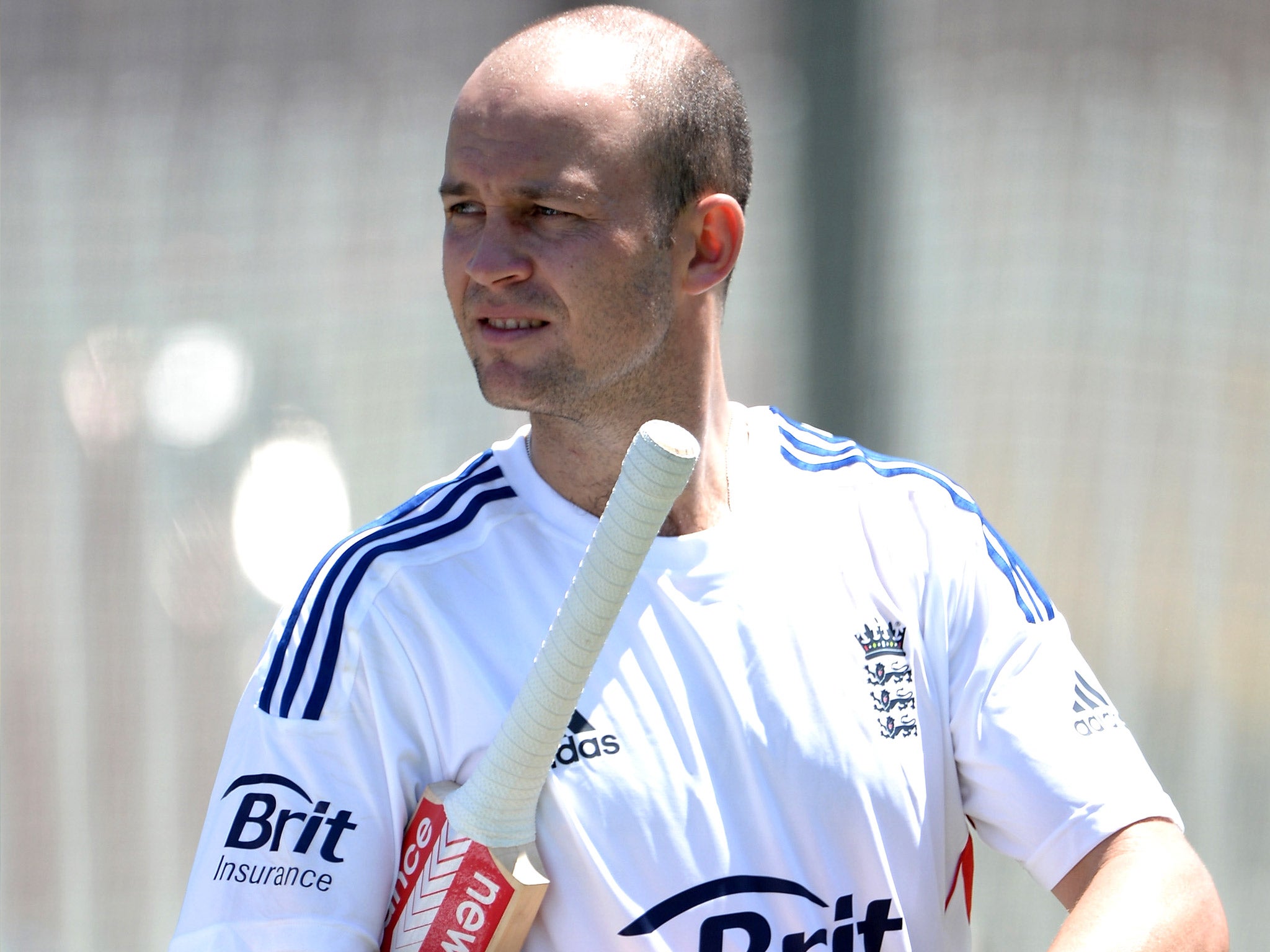Your support helps us to tell the story
From reproductive rights to climate change to Big Tech, The Independent is on the ground when the story is developing. Whether it's investigating the financials of Elon Musk's pro-Trump PAC or producing our latest documentary, 'The A Word', which shines a light on the American women fighting for reproductive rights, we know how important it is to parse out the facts from the messaging.
At such a critical moment in US history, we need reporters on the ground. Your donation allows us to keep sending journalists to speak to both sides of the story.
The Independent is trusted by Americans across the entire political spectrum. And unlike many other quality news outlets, we choose not to lock Americans out of our reporting and analysis with paywalls. We believe quality journalism should be available to everyone, paid for by those who can afford it.
Your support makes all the difference.Jonathan Trott's assertion that mental and physical fatigue had forced him home from England's Ashes tour of Australia rather than depression felt like a “con” and would only convince his team mates he had abandoned them, according to former England captain Michael Vaughan.
The 32-year-old Trott abruptly left the tour after the first test in Brisbane last November. Team officials cited a long-standing "stress-related illness" as the cause.
Trott, however, said in an interview on Sunday that he was not suffering from depression but had been "burnt out".
"I feel a little bit conned we were told Jonathan Trott's problems in Australia were a stress-related illness he had suffered for years," Vaughan wrote in his column in Monday's Daily Telegraph newspaper.
"We were allowed to believe he was struggling with a serious mental health issue and treated him with sensitivity and sympathy.
"He was obviously not in a great place but he was struggling for cricketing reasons and not mental, and there is a massive difference."
Vaughan added that depression was a debilitating illness and for Trott to use terms like "crazy" or "nutcase" in his interview only disrespected those who suffered from it.
"I find it staggering he is so ill-informed that he used those words," Vaughan wrote.
"I have friends who have been diagnosed with depression. They are not nutcases or crazy. They have picked up an illness that is invisible to others but can be debilitating.
"I do not think Trott realises just how important an issue it is."
Former England all-rounder Andrew Flintoff openly discussed his battles with depression after he retired and also presented a documentary about the illness, speaking with other high-profile sportsmen who also were affected.
His former team mates Steve Harmison and Marcus Trescothick have both said they suffered from depression, which ultimately contributed to their international retirements.
Vaughan added that Trott had been suffering from a drop in form and had problems with the short-pitched bowling of Australia's pacemen in the first test at the Gabba, but that was no reason to leave the tour early.
His dismissal in the second innings of the first test was labelled as 'weak' by Australian batsman David Warner, which drew a rebuke from the England team.
Trott left after that match and England were hammered 5-0 by Michael Clarke's side in the tests and beaten 4-1 in the one-day internationals and 3-0 in the Twenty20 series.
"I have no doubt he was going through hard times in Australia but as professional sportsmen playing in a high-profile, intense series such as the Ashes against good opposition you are going to endure stress when your form goes. It is part of the job," Vaughan added.
"Trott was failing on the biggest stage and he admitted that the previous occasion he suffered burnout was in South Africa in 2009-10, the only other time he has faced top-quality fast bowling.
"He was in a bad state mentally in both series but also technically and until he corrects the faults in his game against fast bowling, he will not get any better."
Vaughan said Trott would need to earn his place back in the England team, though even then he may not be welcomed back as other players like Joe Root and Matt Prior were dropped for poor form on the Ashes tour but did not quit and return home.
"What Trott will have to accept is that players in his own dressing room and in the opposition will look at him and think at the toughest of times he did a runner," Vaughan wrote.
"He did not fight and got on a plane and went home. It is harsh but that is the reality."
Reuters

Join our commenting forum
Join thought-provoking conversations, follow other Independent readers and see their replies
Comments